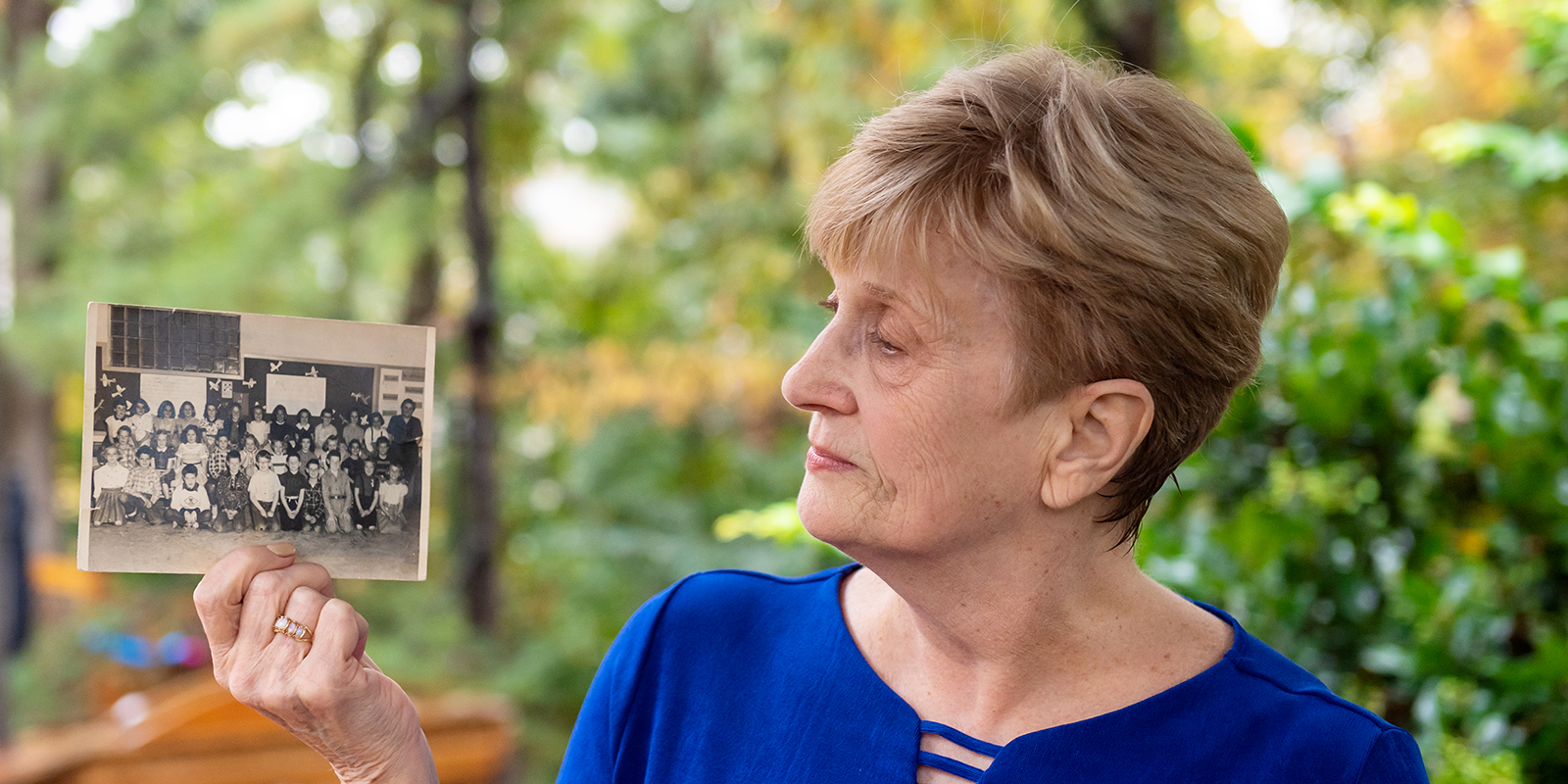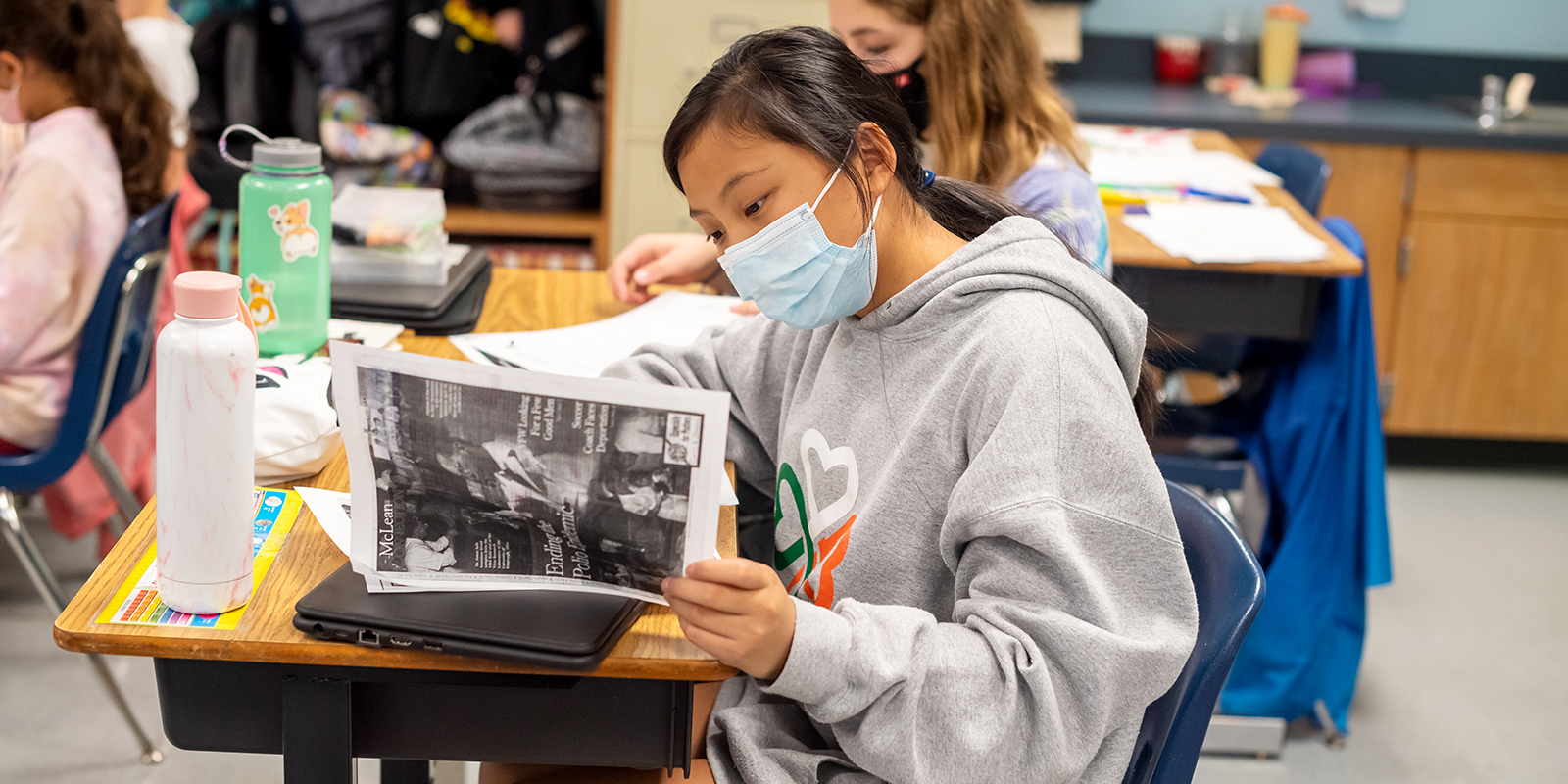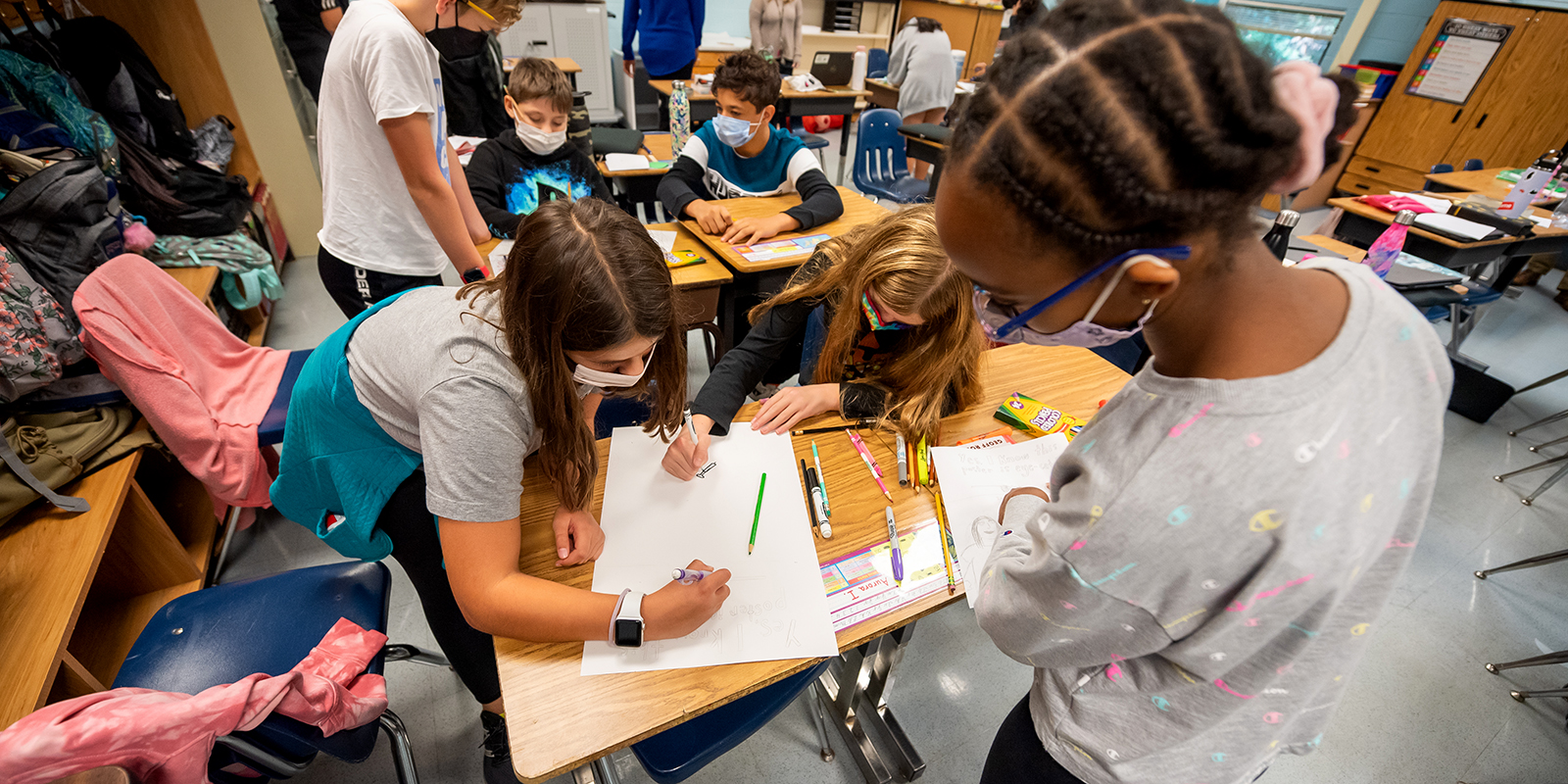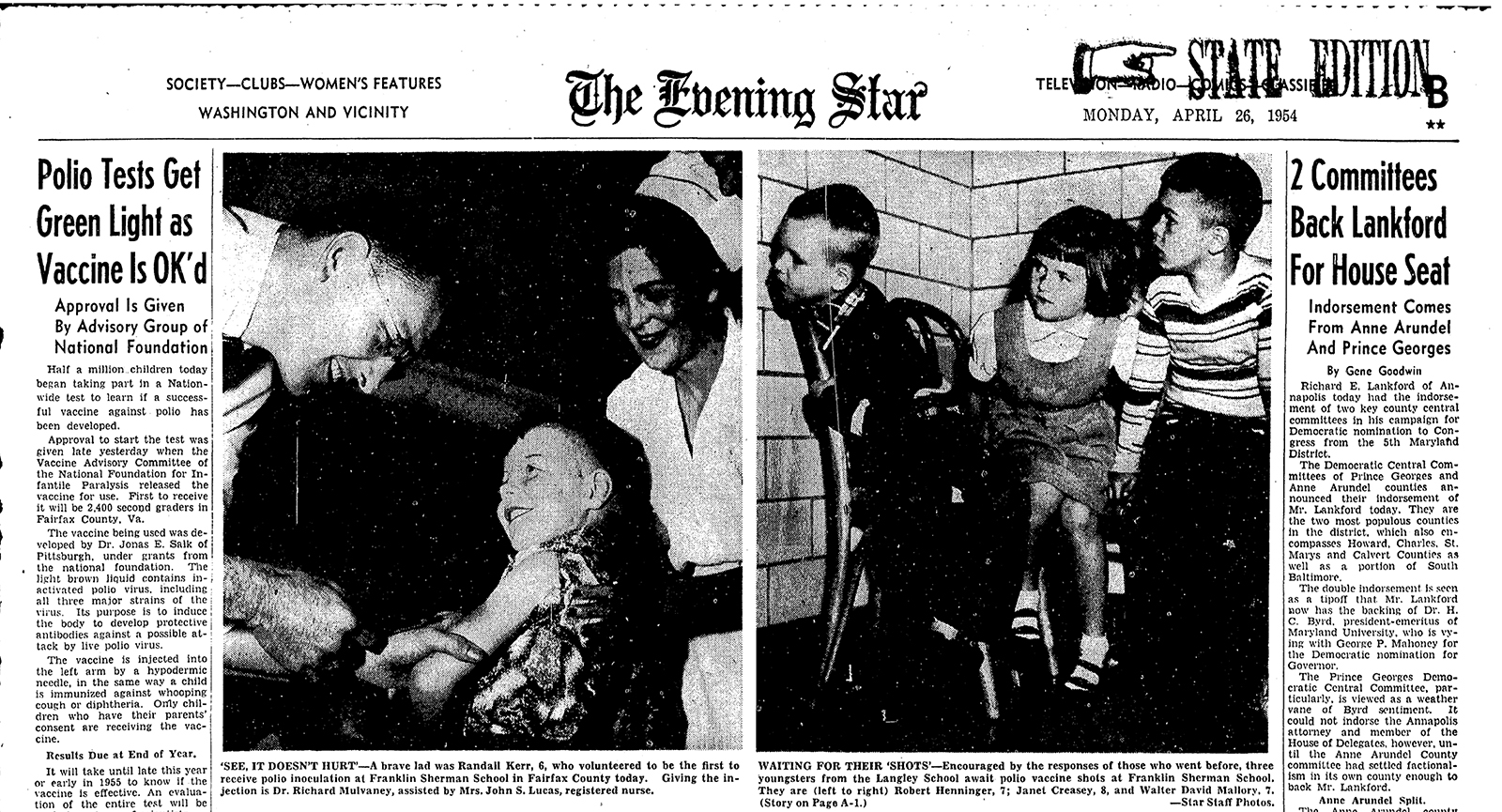After 67 Years, Fairfax County Public Schools Reprise Role in Vaccine History
In April 1954, Gail Adams, an FCPS second-grader at the time, knew she was a part of something big. Gail says she recalls a car pulling up to transport her and two other classmates to visit a doctor, where they were going to get a shot.
Gail remembers that she didn’t want to cry. A boy in front of her fainted, but she held strong and remained dry-eyed as she felt the needle delivering a field trial dose of the Salk polio vaccine. Afterwards, there was an ice cream sundae to celebrate.
“I was really honored that I was picked to be part of this group,” Gail Adams Batt, says now. “I knew what Polio was and we children were terrified of it. There was a boy who sat next to me at school, and one day he wasn’t there. We heard he got polio and we’d walk by his house and wonder.”

Fairfax County Public Schools, and McLean’s Franklin Sherman Elementary in particular, can lay claim to a significant role in the fight against polio. Students from across the district became “Polio Pioneers” in nationwide field trials for the Salk vaccine. Those trials kicked off at Franklin Sherman where a group of primarily second-grade students became the first healthy kids in the country to receive the vaccine.
Now, 67 years later, First Lady Jill Biden plans to visit Franklin Sherman ES in a nod to history as part of a nationwide effort to encourage pediatric COVID-19 vaccination. Biden’s visit follows the deaths of more than 5 million people around the world from the virus, including more than 750,000 Americans and more than 1,200 Fairfax County residents. (See Washington Post Nov. 8 story about the visit, Franklin Sherman's role in history).
Franklin Sherman’s sixth-grade students have been embracing their school’s past, digging into a research project last month about the role the community played in the eradication of polio.

“We read articles about the polio vaccine, the history of Franklin Sherman Elementary, and they were tasked with creating public service posters to encourage healthy activities during the pandemic,” said Romona Wright, a sixth grade teacher at Franklin Sherman. “A couple of students have said this is just like polio, the pandemic we are going through now.”
Two students in White’s class, Lily Alqabany and Catarina Francisco Skamnelos, wrote a song to accompany a poster promoting pediatric vaccination.
“Do you want to go outside without a mask, do you want to go out and have a blast? Do you want to do a lot of things you can’t now? Well I know how – take the vaccine!,” they sang.
Students learned about a broadcaster from the 1950s named Walter Winchell who warned parents against getting their kids vaccinated against polio. Some other local districts -- including Washington, D.C., Montgomery County, Md. and Arlington, Va. initially postponed participation in the Salk vaccine field trials.

Gail Adams Batt, now 74, remembers hearing many years later from her mother about the contentious PTA meetings that occurred at the time, with some parents vehemently arguing against any participation in the polio vaccine trials. Her mother, she says, admired former First Lady Eleanor Roosevelt and signed her up, believing in Roosevelt’s push for vaccination. She was nervous though, and told Gail later that she watched her “like a hawk" for weeks afterwards.
Others weren’t aware of the controversy.
“It was a shot, nothing different more or less,” says Walt Mallory, a Franklin Sherman Elementary second-grader who became a Polio Pioneer in 1954.

“My parents worked for the State Department so I was used to getting shots,” said Mallory, a 75-year-old former FCPS employee, ex Falls Church City assistant superintendent and retired education professor at Virginia Tech University. “I don’t remember much of a fuss about it -- they said line up for a shot and we did.”
Mallory and Gail Adams Batt agree on one thing, however. Their life experiences made them big believers in pediatric vaccination and they’re eager to encourage future generations to follow suit.
Franklin Sherman sixth-grader Leyat Nigussie expects as much from the Polio Pioneers.
“People who lived in the polio time, they want us to remember what happened,” Nigussie, a student in White’s class said. “Well, we want people going forward to remember what we lived through with Covid too.”


